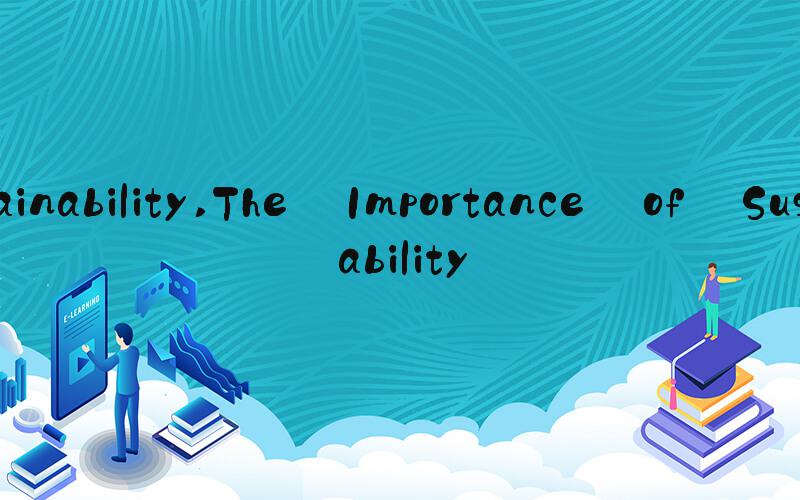
Sustainability: Why It Matters and How We Can Achieve It
When it comes to the future of our planet, sustainability is a crucial concept that cannot be ignored. At its core, sustainability is about meeting the needs of the present without compromising the ability of future generations to meet their own needs. In other words, it is about finding a balance between economic growth, social well-being, and environmental protection. Here's why sustainability matters, and some steps we can take to achieve it:
The Importance of Sustainability
One of the biggest challenges we face today is the preservation of our planet's natural resources. From clean air and water to biodiversity and natural habitats, we rely on these resources for our very survival. Unfortunately, human activities such as industrialization, deforestation, and pollution have put these resources at risk. If we don't take action to protect them, we risk irreversible damage to our planet's ecosystem and the long-term well-being of its inhabitants. Sustainability is therefore a critical issue that needs to be addressed urgently.
The Three Pillars of Sustainability
Sustainability is often described as having three pillars: economic, social, and environmental sustainability. Economic sustainability is about creating a thriving economy that benefits everyone, not just a select few. Social sustainability is about building strong and vibrant communities that support the well-being of all their members. Environmental sustainability is about protecting our planet's natural resources and minimizing our impact on the environment. To achieve sustainability, we must find ways to balance all three pillars.
Steps We Can Take to Achieve Sustainability
While achieving sustainability is a complex challenge that requires coordinated efforts from all sectors of society, there are many steps we can take on an individual level to contribute to the cause. Here are some key actions we can take:
1. Reduce Your Carbon Footprint
Greenhouse gas emissions are a major contributor to climate change and global warming. By reducing your carbon footprint, you can help minimize your impact on the environment. This can be done by choosing more sustainable modes of transportation, reducing your energy consumption, and switching to renewable energy sources wherever possible.
2. Consume Responsibly
The products and services we consume have a significant impact on the environment. By choosing to buy products made from sustainable materials, supporting companies with environmentally friendly practices, and reducing waste, we can contribute to a more sustainable future.
3. Support Local Communities
Building strong and vibrant communities is an essential component of social sustainability. By supporting local businesses, volunteering in your community, and actively engaging in political processes, you can help create a more equitable and just society.
4. Develop Sustainable Practices in Your Workplace
Whether you are an employer or an employee, there are many ways to develop sustainable practices in your workplace. This can include reducing waste, using energy-efficient equipment, and supporting environmentally friendly policies.
Conclusion
Sustainability is a critical issue that affects us all. By finding ways to balance economic growth, social well-being, and environmental protection, we can create a more sustainable future for ourselves and for generations to come. While there is still much work to be done, every individual can contribute by taking simple actions in their daily lives. Together, we can work towards a more sustainable world.

